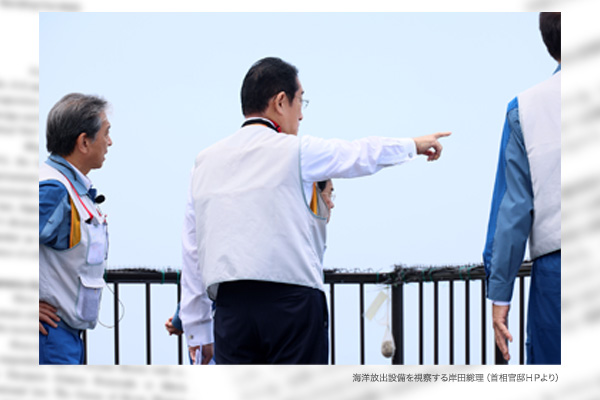China has announced an import ban on seafood from Japan. One month ago, I proposed Japan to take countermeasures to China’s blanket inspections of Japanese seafood in this Speaking Out column. Nevertheless, the Kishida administration failed to take any such measures and instead released treated water from Tokyo Electric Power’s Fukushima Daiichi Nuclear Power Station into the ocean.
I was surprised to hear that both Prime Minister Fumio Kishida and Agriculture, Forestry and Fisheries Minister Tetsuro Nomura commented the Chinese action as "unexpected." The comment exposed the Kishida government’s lack of crisis management. As usual, the government has taken a simple diplomatic action of explaining the scientific rationality of the treated water release and demanding China’s withdrawal of the embargo. Such a lukewarm response is hardly expected to make a breakthrough.
China's seafood embargo is not a countermeasure to the release of treated water, but a politically motivated economic coercion. If failing to address the matter effectively, Japan will be seen as easy pickings, encouraging China to repeat economic coercion in other areas. Japan needs actions to deter such situation. The very foundation of economic security is called into question.
Five actions that Japan should take
I propose the following five-action package for Japan to deploy strategic diplomacy:
(1) Inspect all seafood from China for the reason that tritium emissions from Chinese nuclear power plants are more than five times as much as treated water from the Fukushima Daiichi power station. Such blanket inspection will help disseminate information within China.
(2) File a petition with the World Trade Organization. In 2020, Australia filed a petition with the WTO against China's imposition of additional tariffs on barley, wine, and other imports from Australia in response to Australia's request for an independent investigation into the cause of the COVID-19 outbreak. The petition with the WTO will be an important card for a future diplomatic deal.
(3) Take up the Chinese action, as this year’s chair of the Group of Seven, for the Coordination Platform on Economic Coercion as agreed at a G7 summit in May and request other G7 members’ support for the exploration of alternative markets for Japanese seafood.
(4) Move Chinese facilities for processing Japanese scallops out of China and expeditiously develop scallop supply chains that do not depend on China. Massive Japanese scallops have been exported to the United States after processing such as unshelling in China where labor costs are low. As the reduction of dependence on China will affect employment in China, Japan can launch this action to keep China in check.
(5) Exploit contradictory Chinese actions, including tritium emissions from Chinese nuclear power plants and Chinese fishing boats’ massive capture of saury in waters off northeastern Japan, for an effective information war to work on Chinese consumers and the international audience.
A Chinese diplomatic card?
We should also find out the purpose of China that manipulates the impression of the treated water from the Fukushima Daiichi power station by calling it nuclear-contaminated water to stir up public opinion against Japan in China and takes unreasonable forceful actions while Japan is not expected to stop the ocean release.
We can glimpse China’s intention to use the embargo as a diplomatic card in bargaining over semiconductor trade restrictions that represent China’s Achilles’ heel and the main battlefield of the U.S.-China confrontation. At a time when Japan and China were arranging a bilateral leaders’ meeting on the sidelines of international conferences in September, Japan should do more than a single-track diplomacy asking China to withdraw the embargo.
Masahiko Hosokawa is a professor at Meisei University and a former director-general of the Trade Control Department at Japan’s Ministry of Economy, Trade and Industry. He is also a Planning Committee member at the Japan Institute for National Fundamentals.


